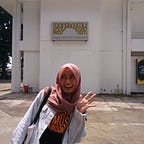The sustainability challenges of open access in Museum Musik Indonesia
During the COVID-19 crisis, open access policies in GLAM collections have become more important than ever because they allow museums to continue engaging their audiences even when they’ve been forced to close. Museum Musik Indonesia (MMI) has adopted open access by digitising its collection of Aktuil magazines and publishing them online for the public to enjoy. This project was funded with a grant from UNESCO’s Memory of The World Committee for Asia and The Pacific. Aktuil was an Indonesian music magazine published 1968–1986 about the history of music in Indonesia, especially pop and rock music.
Museum Musik Indonesia (MMI) embarked on its open access journey around 2015-2016. At that time, there was a funding opportunity from the Creative Economy Agency which has since merged with the Ministry of Tourism and Creative Economy. The funding included activities to digitise collections of Indonesian popular music works so that they could be more easily accessed by the public for educational purposes. The museum collection digitised at that time was comprised of vinyl records and CDs, DVDs and VCDs.
This open access initiative presented MMI with the opportunities to carry out its mission to preserve and share Indonesian music with the widest possible educational and research communities. However, after two years of project work had been carried out successfully, with over 20,000 songs digitised, MMI was unable to continue because its operational maintenance costs were so high. Open access activities did not generate revenue that supported the work. Maintenance costs, such hosting and servers, were high and challenged the sustainability of open access.
Many grant funded programmes, like this one, are one-off projects so there is no sustainability funding. It is difficult to measure the indicators of programme success if there is no assistance with sustainability, especially as programmes like this are important for a long time. To cope with this situation, MMI has recently begun coordination with Wikimedia Commons Indonesia to open up possibilities for cooperation.
On the other hand, there are not many copyright exceptions & limitations for GLAM institutions in Indonesia, as you can read in the article “Public Domain’s Provisions for Open GLAM Activities in Indonesia”. This situation presents risks for a GLAM institution like MMI where most of the collections are contemporary and still in copyright. To take a recent example, when a colleague from an art museum planned to create an online catalogue that could be downloaded for free, one artist’s estate artist asked for a royalty payment for every 1000 times that one of their images was downloaded. This makes digitisation and online publication of in-copyright material unaffordable for GLAM institutions in Indonesia.
